Encourage growth in spelling and writing conventions with a board game to practice making contractions using apostrophes.
Contractions – Language Arts Board Game Fun!
A contraction is a shortened form of two words with an apostrophe taking the place of the omitted letter(s), e.g. do not = don’t. Once students learn where to put the apostrophe, contractions are a breeze! That’s where this resource comes in. It is the perfect writing center activity to use again and again with your students to help them get the hang of it. They’ll love it!
Students will make their way around the game board, identifying and saying words as contractions. This game can be played using the spinner included with the download or by simply using a die or dice – the choice is up to you!
Through this activity, students will show their ability to make, use, and spell contractions.
All About Contractions
Contractions are a key aspect of English grammar that simplify communication by combining words and shortening phrases. Understanding and using contractions correctly is essential for both written and spoken English. This guide covers everything you need to know about contractions.
What Are Contractions?
Contractions are shortened forms of words or combinations of words where certain letters are omitted and replaced with an apostrophe. They are commonly used in informal writing and speech to make language more concise and conversational. For example, “do not” becomes “don’t” and “I am” becomes “I’m.”
Common Contractions
- Subject + Verb Contractions:
- I am → I’m
- You are → You’re
- He is → He’s
- She is → She’s
- It is → It’s
- We are → We’re
- They are → They’re
- Negative Contractions:
- Do not → Don’t
- Does not → Doesn’t
- Did not → Didn’t
- Cannot → Can’t
- Will not → Won’t
- Is not → Isn’t
- Are not → Aren’t
- Was not → Wasn’t
- Were not → Weren’t
- Other Common Contractions:
- Will not → Won’t
- Would not → Wouldn’t
- Should not → Shouldn’t
- Could not → Couldn’t
- Has not → Hasn’t
- Have not → Haven’t
- Had not → Hadn’t
- Let us → Let’s
Download and Play Today!
Use the dropdown icon on the Download button to choose between the Color or Blackline PDF version of this resource.
Print on cardstock for added durability and longevity. Place all pieces in a folder or large envelope for easy access.
This resource was created by Lindsey Phillips, a teacher in Michigan and Teach Starter Collaborator.
Contraction Resources for the Classroom
Don’t stop there! We’ve got more activities and resources that cut down on lesson planning time:
| [resource:4802622] [resource:4646384] [resource:2655578] |
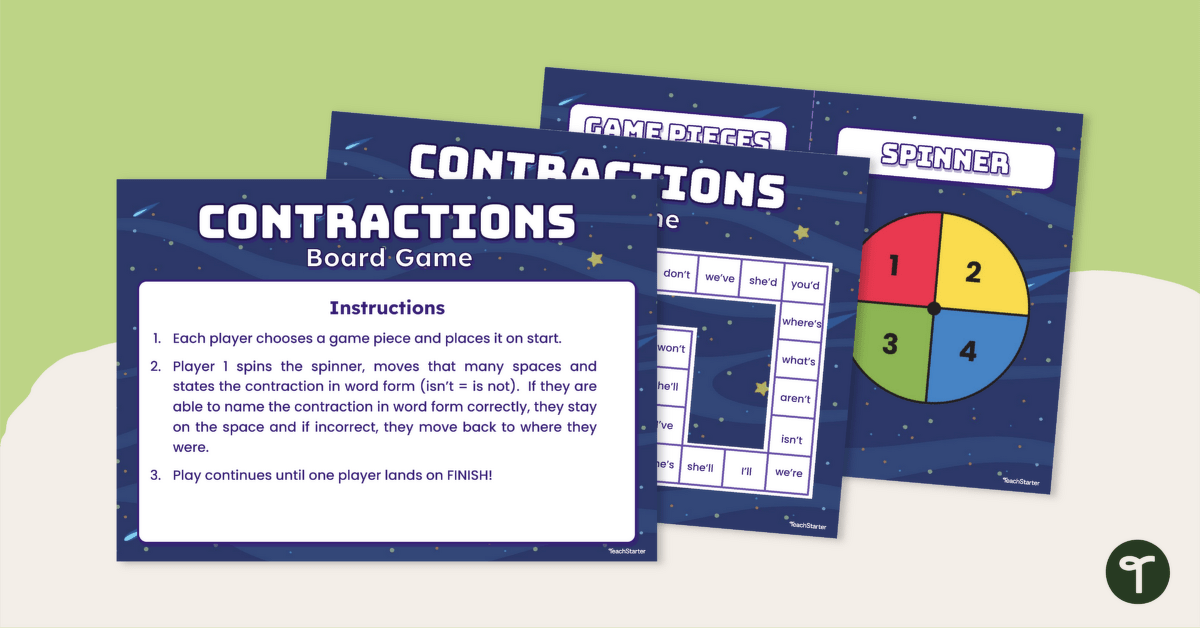

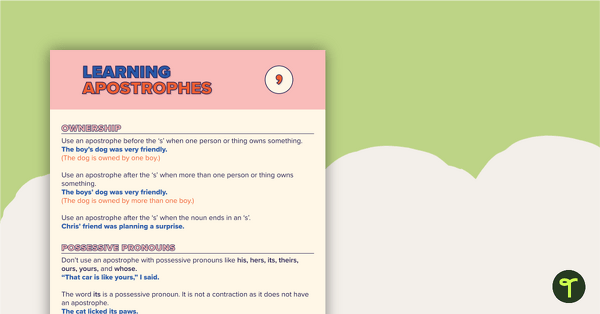
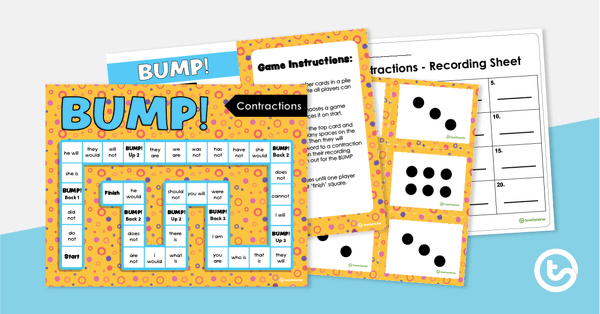
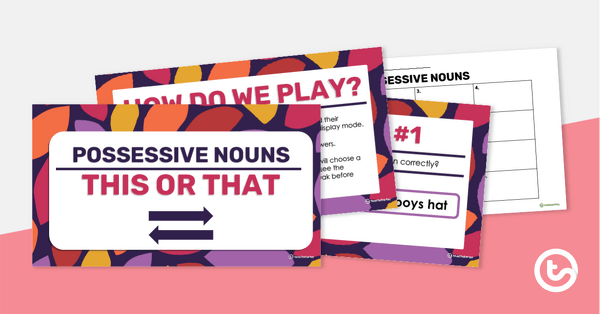
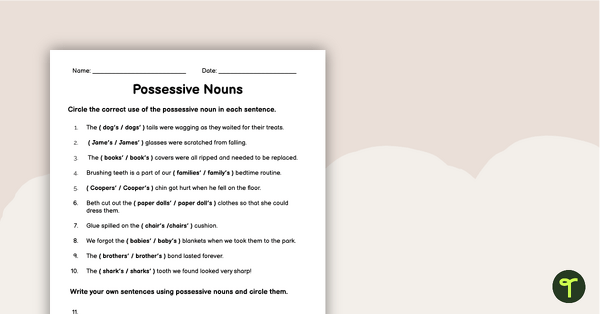
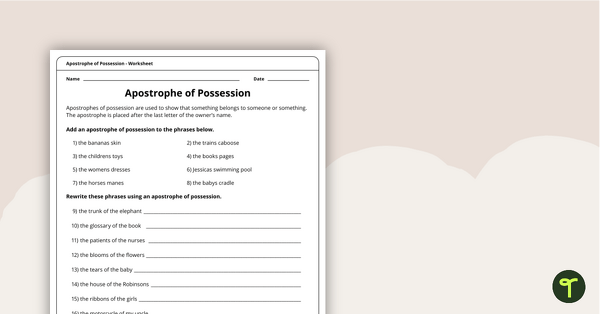
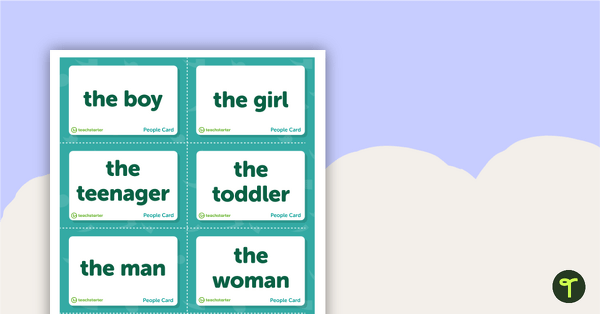
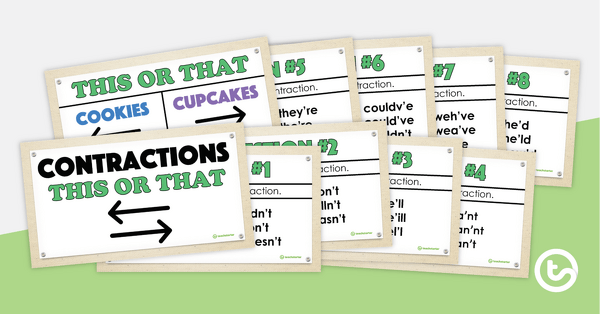
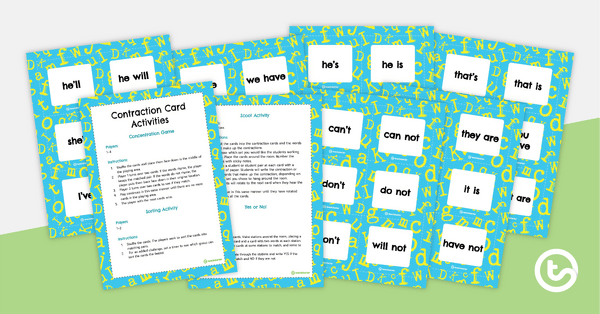
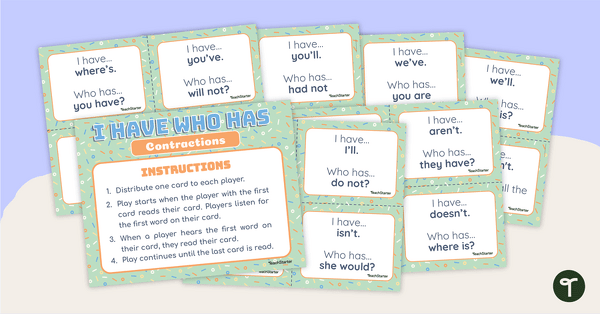
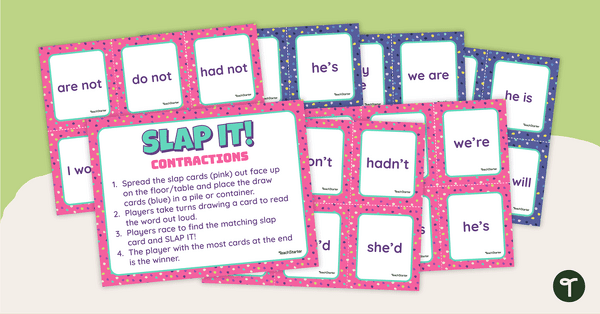
0 Comments
Write a review to help other teachers and parents like yourself. If you'd like to request a change to this resource, or report an error, select the corresponding tab above.